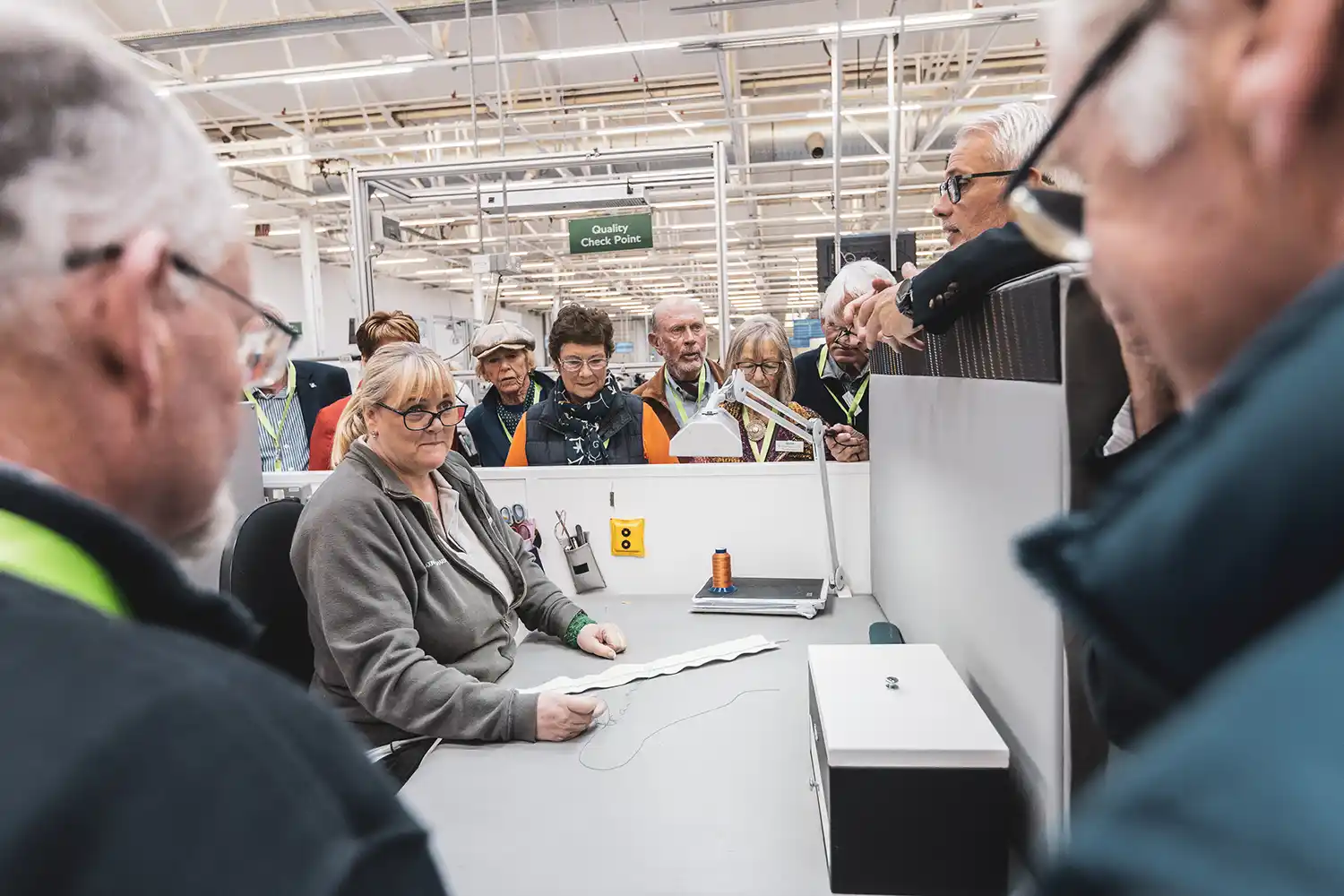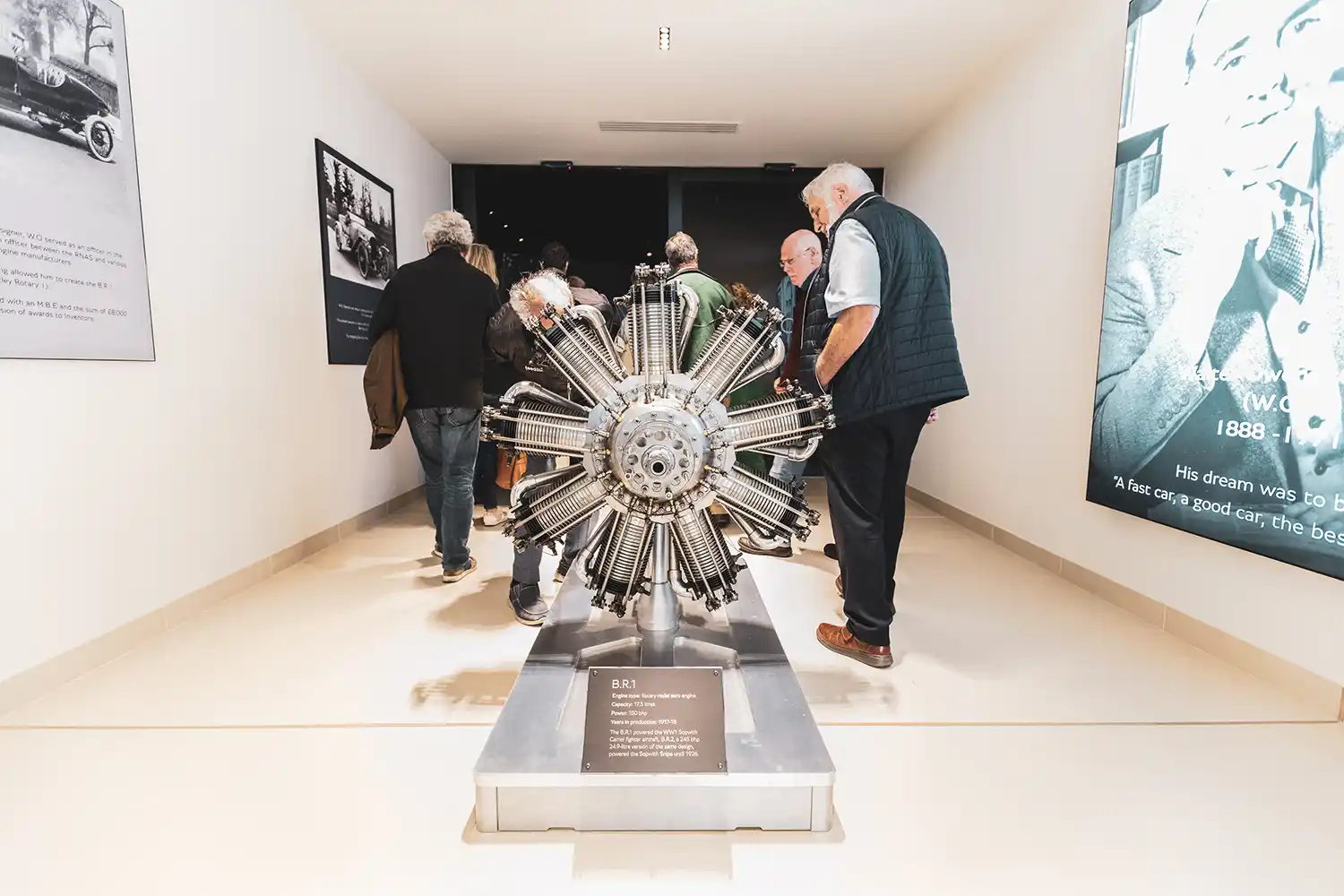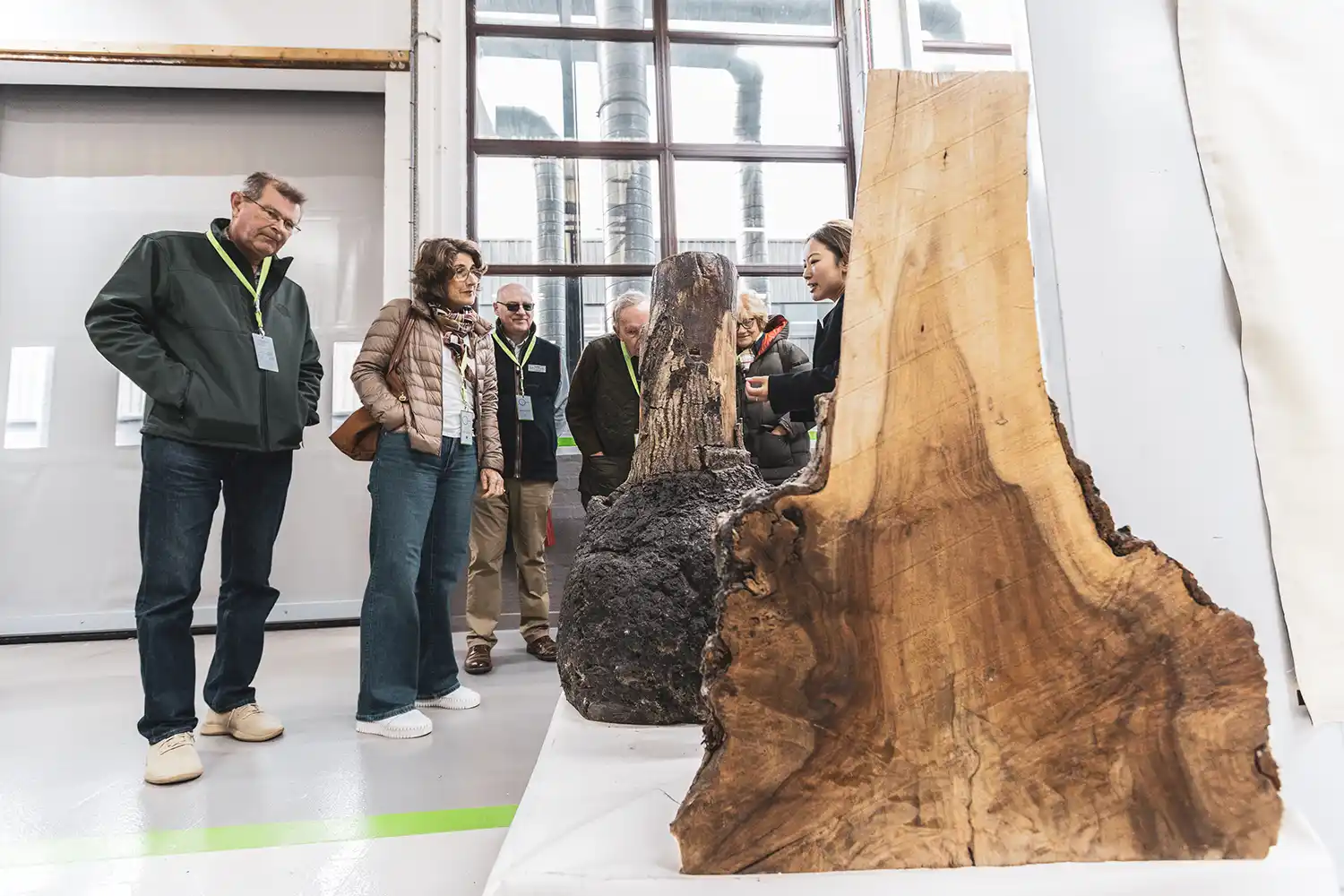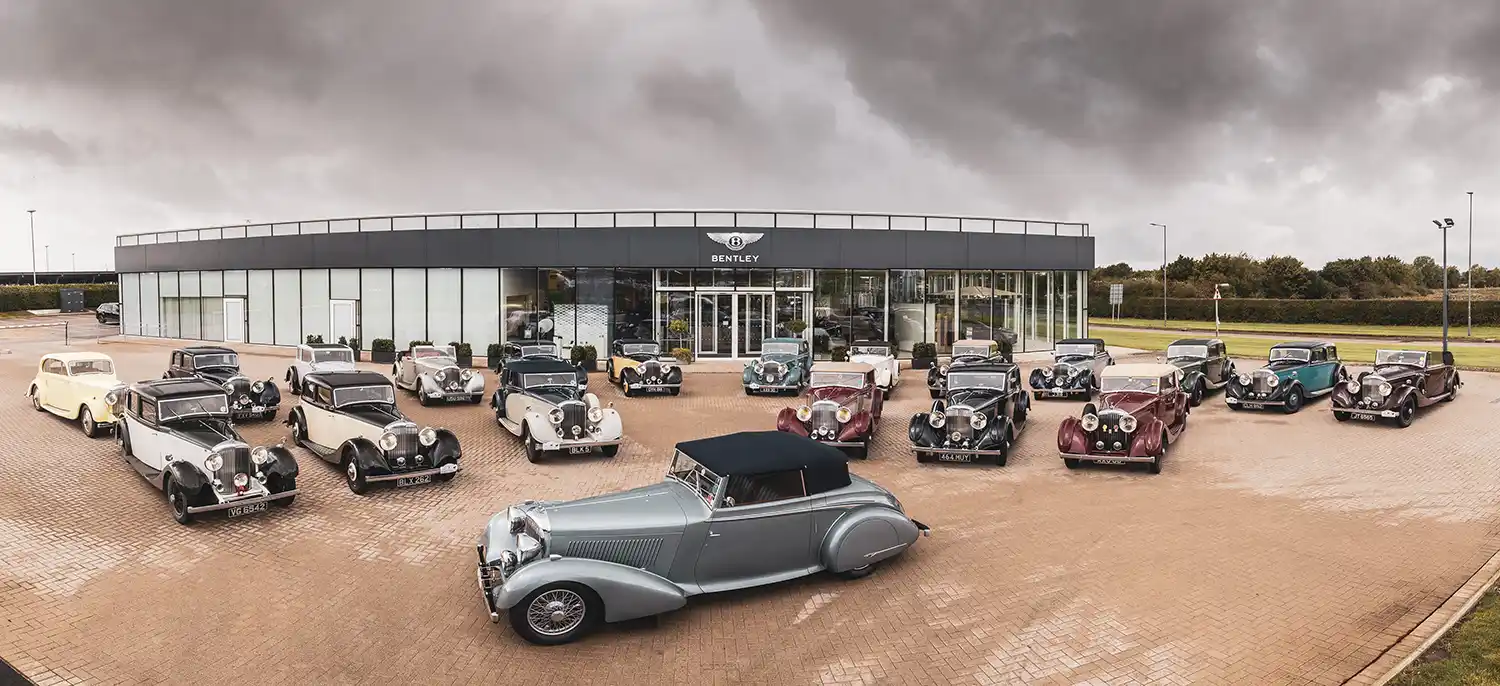
Bentley Motors has welcomed 60 beautiful Bentleys of the ‘Derby era’ to Crewe to celebrate the 90th birthday of the Bentley 3½ Litre, commonly known simply as the ‘Derby Bentley’.
Organised by The Silent Sports Car Club – the owners club dedicated to the Derby Bentley – a cavalcade of cars convoyed to Bentley’s Dream Factory in Crewe last Friday, with more than 100 guests enjoying a tour of the campus, exploration of the Bentley’s newly refurbished Heritage Collection and a visit to the Mulliner workshops.
Bentley’s own Derby Bentley, a 1934 3½ Litre with coachwork by Thrupp & Maberley, was on display for the guests in the newly-opened Lineage area, where the eight pre-war cars of the Heritage Collection are on display. On Saturday, one of the crown jewels of Bentley’s fleet – the one-of-one 1939 MkV Corniche, recently re-registered and returned to the road for the first time in 84 years – was the guest of honour at a black tie dinner to formally mark 90 years of Derby Bentleys.
The Derby Bentleys that came to Cheshire covered a huge array of coachwork styles, representing a significant proportion of the more than 40 independent coachbuilders that provided bespoke bodywork for the model in the 1930s. Standout cars included chassis B15AE (one of two original launch cars) produced in September 1933) and chassis 3-B-50 (the only survivor of four experimental six-cylinder saloons from 1939), perfectly encapsulating an enormous variety of cars from the era.
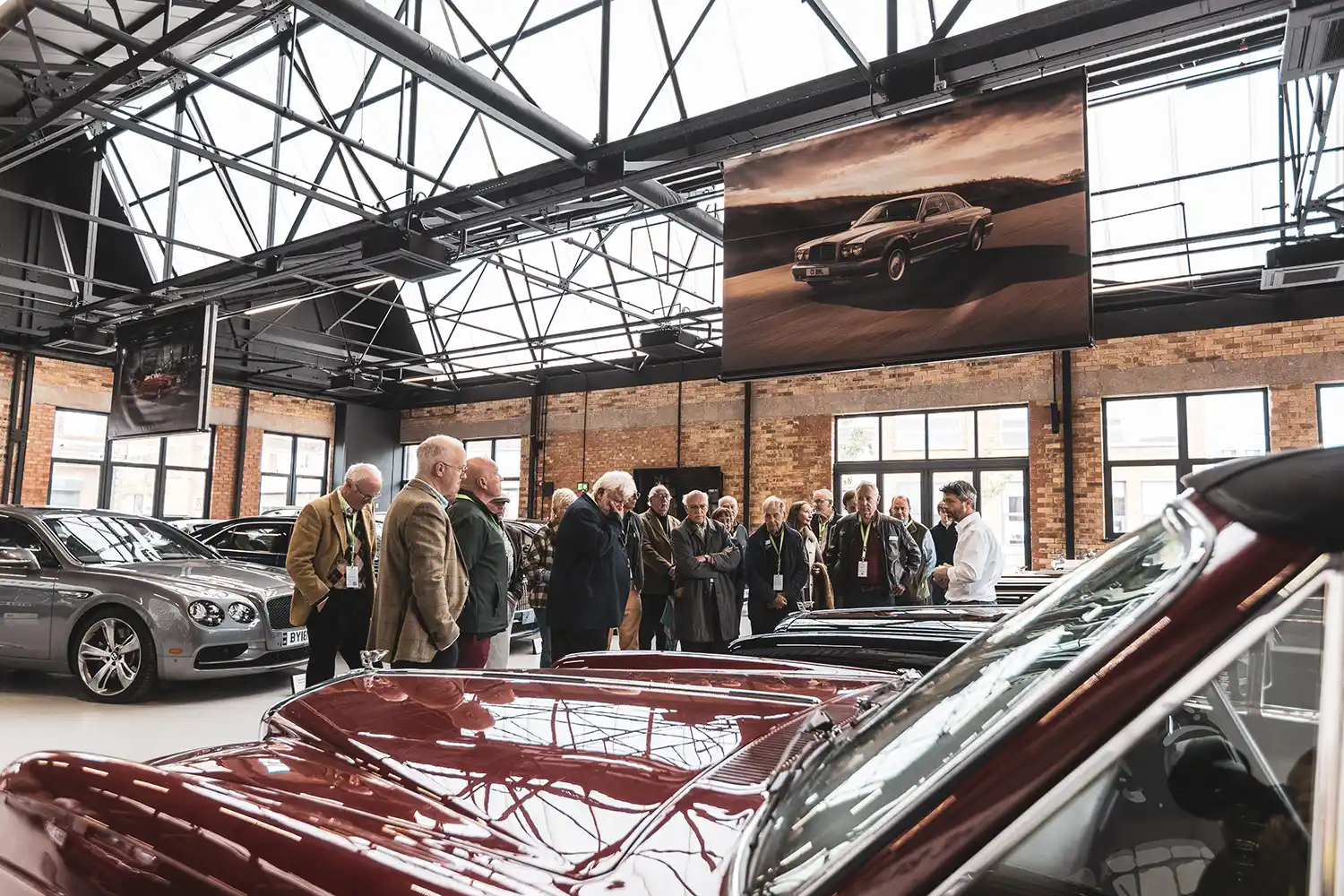
The Derby era saw Bentley producing up to 500 cars per year, with the 3½ Litre followed by the improved 4¼ Litre and together representing the first Bentleys produced under Rolls Royce ownership. This period of Bentley history also produced some important one-offs – the streamlined ‘Embiricos’ coupe of 1938 and the recently-restored 1939 MkV Corniche. These two cars together helped shaped the design DNA that sculpted the Bentleys of the 1950s and even inspired the original and current Continental GTs.
The Silent Sports Car
The six-cylinder, 3½ litre engine of the Derby Bentley was smooth, refined and produced around 120 bhp, a respectable output for the era. Quality was superb; the cars were stylish, fast, refined, elegantly proportioned and easy to drive. Compared with the unsynchronised gearboxes of all preceding Bentleys, the advantages of Derby’s synchromesh were clear, while supple springs and stiffer chassis frames set high standards of handling.
The Derbys were more refined and more agile than their Cricklewood predecessors yet cost up to £400 less, and so reached a wider clientele than any previous Bentley. The 3½ Litre was endorsed by celebrities including racing drivers Sir Malcolm Campbell and Archie Frazer-Nash.
The 3½ Litre Bentley needed some developmental changes during production, including an additional chassis cross-member in front, and harmonic-stabiliser bumper to improve ride and handling. In 1936 a larger engine was offered as an alternative to the regular 3½ Litre. For an extra £50 owners could opt for quarter of an inch (6.35 mm) wider cylinder bores and a few cosmetic additions. This model became the 4¼ Litre and by 1939 production numbers had passed those of the earlier car.
Bentley’s own Derby is chassis number B53AE (registration number AXB3), a four-door sports saloon delivered by dealer Jack Barclay to its first owner, Alex Mitchell of Tulliagan Castle in Scotland, early in 1934. He’s known to have kept the car until the war, and sadly records have been lost for the next owners, but at some time it made the journey across the Atlantic. It was discovered in a barn in East Otis, Massachusetts in 1968. Charles H. Wolfe of Lancaster, Philadelphia was recorded as the next owner in 1987 and he gave the car to the care of Bentley Motors in 2004.
